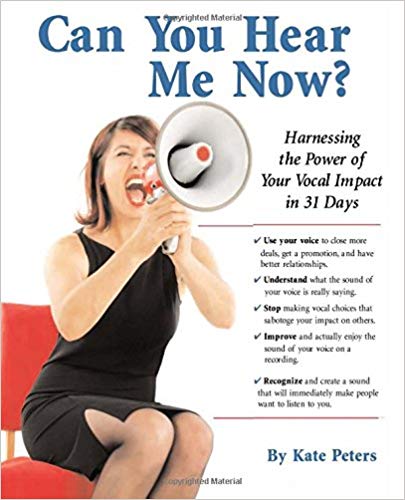What’s Your Laryngitis Trying to Tell You?
Years ago, I was performing a role in a show when I came down with a bad case of laryngitis. I did not have a cold, and it wasn’t clear to me how I had contracted laryngitis, but there was no doubt that my voice was gone. Since the show needed to go on and I didn’t have an understudy, I did what any good singer would; I went to see a laryngologist, who gave me steroids (obviously we don’t have the same restrictions on our credibility as athletes!). The steroids cleared up most of the symptoms and I finished the run that weekend as if there had been no problem with my voice … mostly!
On the Monday following the show’s closing, I woke up to find that the laryngitis was back, and worse than before. I absolutely had no voice for days. Subsequently, I learned that this can happen with the use of steroids because they don’t actually cure the problem. They mask it, and use of your voice can damage already strained tissue and muscles even further. I wasn’t too upset however because I needed the rest, but when two weeks went by without any significant improvement, it was time to return to the laryngologist. After looking at my vocal folds with a laryngoscope he told me that it looked like I had been singing in a smoke-filled bar for hours each night! I needed extreme vocal rest. Since I had NOT been singing in a bar at all, or anywhere else for two weeks, he suggested that it must be allergies and prescribed an antihistamine along with the rest. Eventually, the laryngitis went away, but it was still another few weeks before I was completely healed.
Looking back, it is clear to me that allergies were probably a part of the picture, though I never found the culprit, but I also know that I was going through a difficult personal time as well. If I lost my voice today, I might ask different questions of the situation than I did at the time. Instead of running straight to the doctor, I might stop a moment to ask myself first what I needed to say that I was having difficulty saying. I might ask myself something like “If you could find your voice, how and where would you find it? And if you could say anything you wanted to say without being worried about what someone else would think, what would you say?”
The part of ourselves we call our “voice” is more than muscles and sound.
It is how we express ourself in the world. My definition of voice, in fact, is the intellectual and emotional impact our expression has on the world. Your “voice” is a representation of the unique person you are. It is a metaphor for your personality and ideas. In writing a blog or a book, your opinion is still your “voice.” You can still “speak” in an e-mail. You have a “voice” even when it is inaudible. Therefore, when you can’t speak physically, it might be useful to look at the deeper issue of blocks to your personal expression for the underlying answer to the issue.
What do you think?
Connect with us on LinkedIn
Connect with the author on LinkedIn
ID 43865554 © Mystock88photo | Dreamstime.com





